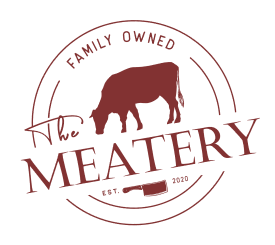Halal wagyu represents the perfect fusion of Japanese beef excellence and Islamic dietary requirements. The most sought-after cuts include the ribeye (rib roast), striploin, tenderloin, and chuck roll, each offering unique characteristics that make them prized by culinary enthusiasts.
The ribeye is particularly celebrated for its exceptional marbling, creating a buttery texture and rich flavor profile. The striploin, known for its perfect balance of lean meat and fat content, provides versatility in cooking methods. Tenderloin cuts offer the most tender eating experience, while chuck rolls present an economical option without compromising on the signature wagyu quality.
Each cut of halal wagyu exhibits the characteristic marbling pattern that sets it apart from conventional beef. This intramuscular fat distribution, when prepared correctly, creates a melt-in-your-mouth experience that's distinctly wagyu. The meat typically presents a bright red color with white marbling throughout, indicating the high quality and proper handling of the product.
Halal Certification And Sourcing
The halal certification process for wagyu beef involves rigorous oversight and strict adherence to Islamic law. Certified facilities must meet both traditional Japanese wagyu standards and halal requirements, creating a unique intersection of quality control measures.
Key aspects of halal wagyu certification include:
- Verification of animal feed to ensure no prohibited substances
- Humane treatment throughout the animal's lifecycle
- Islamic slaughter methods performed by qualified individuals
- Complete separation from non-halal products during processing
- Regular audits by certified halal authorities
Reputable suppliers maintain documentation tracking each animal from birth to processing, ensuring complete transparency in the halal certification process. This comprehensive approach guarantees that Muslims can enjoy premium wagyu beef while adhering to their religious dietary requirements.
Source Transparency
Transparency in halal wagyu production involves a sophisticated tracking system that monitors each animal's journey from farm to table. Every certified halal wagyu producer must maintain detailed records including:
- Birth certificates and genetic lineage documentation
- Feed records and vaccination history
- Transportation logs between facilities
- Processing date and location information
- Halal certification documentation at each stage
Modern technology plays a crucial role in maintaining transparency, with many producers implementing blockchain systems to track their halal wagyu products. This allows consumers to verify the authenticity and halal status of their purchase, providing peace of mind and ensuring compliance with Islamic dietary laws.
Halal Certification Process
The halal certification process for wagyu beef also involves multiple stages of verification and compliance checks. Certification bodies must ensure that all aspects of production meet both Islamic requirements and wagyu quality standards.
The certification process includes:
- Initial facility inspection and documentation review
- Verification of animal feed sources and compositions
- Assessment of slaughter facilities and procedures
- Review of processing and packaging protocols
- Regular monitoring and compliance checks
Certification must be renewed periodically, with surprise inspections ensuring ongoing compliance. This rigorous process guarantees that halal wagyu meets the highest standards of both Islamic law and quality assurance.
What age is Wagyu slaughtered?
Halal wagyu cattle typically reach slaughter age between 28-30 months, significantly later than conventional beef cattle. This extended growth period is essential for developing the characteristic marbling and flavor profile that makes wagyu exceptional.
The age factors that influence wagyu quality include:
- Optimal fat deposition occurring between 24-30 months
- Peak muscle development achieved around 28 months
- Flavor compound development requiring minimum 26 months
- Marbling score maximization at approximately 29 months
This carefully timed process ensures that halal wagyu reaches its full potential while maintaining compliance with Islamic requirements for humane treatment and proper slaughter methods.
Wagyu Grading And Origins
Halal wagyu follows the same strict grading standards as traditional Japanese wagyu, with some additional considerations for halal compliance. The grading system evaluates several key factors:
- Marbling score (BMS 1-12)
- Meat color and brightness
- Fat color and quality
- Firmness and texture
- Overall quality score
Origins play a crucial role in wagyu quality, with various bloodlines producing distinct characteristics. While traditional Japanese wagyu remains the gold standard, halal wagyu is now successfully produced in several countries, including Australia, New Zealand, and select Middle Eastern nations, all maintaining strict adherence to both wagyu breeding standards and halal requirements.









